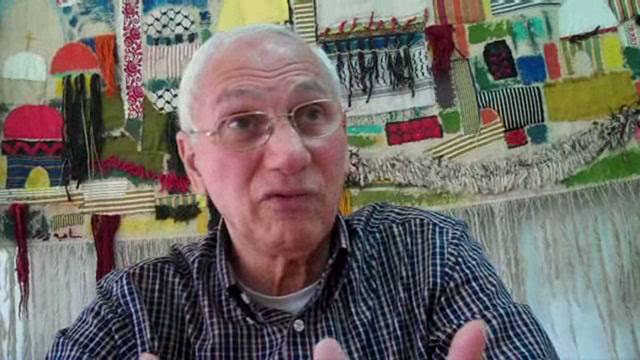There was a cryptic press release from Canadian Friends of Sabeel:
As announced previously by CFOS, CFOS commenced a defamation action against B’nai Brith Canada arising out of an April 2018 article published by B’nai Brith in which B’nai Brith alleged that CFOS had promoted an anti-Semitic book tour. This defamation action has now been settled. As part of the settlement, B’nai Brith has agreed to delete the article in question as well as all of its related social media posts and publications. CFOS has likewise agreed to delete its Press Release announcing the litigation.
[T]he suffering of Jesus Christ at the hands of evil political and religious powers two thousand years ago is lived out again in Palestine. The number of innocent Palestinians and Israelis that have fallen victim to Israeli state policy is increasing. Here in Palestine Jesus is again walking the via dolorosa. Jesus is the powerless Palestinian humiliated at a checkpoint, the woman trying to get through to the hospital for treatment, the young man whose dignity is trampled, the young student who cannot get to the university to study, the unemployed father who needs to find bread to feed his family; the list is tragically getting longer, and Jesus is there in their midst suffering with them. He is with them when their homes are shelled by tanks and helicopter gunships. He is with them in their towns and villages, in their pains and sorrows. In this season of Lent, it seems to many of us that Jesus is on the cross again with thousands of crucified Palestinians around him. It only takes people of insight to see the hundreds of thousands of crosses throughout the land, Palestinian men, women, and children being crucified. Palestine has become one huge Golgotha. The Israeli government crucifixion system is operating daily. Palestine has become the place of the skull.
The militants go on to argue that what they are doing is precisely like a soldier in battle who carries a heroic act by storming a club within a military camp and blowing himself up killing soldiers as well as women and children who happen to be enjoying a party. If one looks at it in this context of warfare, then it happens all the time. No war has been free from such acts and its actors were labeled heroes and were awarded medals posthumously. They were not called terrorists. In the West such acts are deemed heroic, but in Islam, due to the close ties between God and country, they are given a religious character and the people involved are considered “shuhada” (martyrs); their act is martyrdom and its prize is paradise rather than a human military medal. When one considers it from this angle, then being engaged in war and the defense of one’s homeland, these militants would argue, the suicide bombings could be a legitimate way of resistance.









